*NURSING > QUESTIONS & ANSWERS > (Answered) NURS 6630 Week 8 Assignment 1: Short Answer Assessment 2022. (All)
(Answered) NURS 6630 Week 8 Assignment 1: Short Answer Assessment 2022.
Document Content and Description Below
Short Answer Assessment In 3 or 4 sentences, explain the appropriate drug therapy for a patient who presents with MDD and a history of alcohol abuse. Which drugs are contraindicated, if any, and why... ? Be specific. What is the timeframe that the patient should see resolution of symptoms? Before beginning drug therapy for MDD, the provider must first assess for the root cause of the MDD. If the patient also has a history of alcohol abuse, it will be essential to determine if the depression results from the alcohol abuse or if the alcohol is a self-medication tool of the untreated depression (Dongier, 2005). Once established, it is indeed the depression that needs to be treated as the primary diagnosis; choosing a drug therapy that will be as safe as possible if the patients drink is imperative. Since alcohol and depression both cause low levels of serotonin, it is appropriate to prescribe an SSRI. SSRIs have “minimal anticholinergic, antihistaminic, and α1- adrenergic blocking effects, and potent pre-synaptic inhibition of serotonin reuptake” (Fava et al., 2015, p. 380). This makes them less likely to interact with the depressing effects of alcohol and helps increase serotonin levels to combat depression. MAOIs are contraindicated with alcohol use. There is an increased risk of a cardiovascular event such as elevated blood pressure or stroke if a patient drinks alcohol while on an MAOI (Fava et al., 2015). Some other drugs that are contraindicated for MDD and alcohol abuse are mirtazapine and bupropion. Mirtazapine, because of its sedation effects that will be increased with alcohol and could lead to serious injury (IBM Corporation, 2021). Bupropion, because of its increased risk of seizures, is dangerous to mix with alcohol (IBM Corporation, 2021). It would be expected that an MDD patient with a history of alcohol abuse starting on an SSRI would see a decrease in symptoms typically in 4-6 weeks, but if they are still drinking, that may be prolonged. Alcohol can increase depressive symptoms making it harder for the This study source was downloaded by 100000831988016 from CourseHero.com on 04-06-2022 01:28:51 GMT -05:00 https://www.coursehero.com/file/87788150/Wk8-short-asnswerBuckAdocx/ medication to do its job. While antidepressants have been shown to help treat alcohol abuse as well as MDD, the dosages required are higher than usual, and the time to effectiveness is prolonged (DeVido & Weiss, 2012). List 4 predictors of late-onset generalized anxiety disorder. The four predictors of late-onset generalized anxiety disorder are: 1. Being a female 2. Having a mental health disorder such as depression 3. Experiencing a recent adverse life event 4. Having a chronic physical health issue (Ancelin et al., 2015). List 4 potential neurobiology causes of psychotic major depression. 1. The first potential neurobiological of psychotic major depression is low levels of plasma brainderived neurotrophic factor (BDNF) (Aitchison et al., 2011). 2. Another possibility is the dysfunctional regulation of the hypothalamic-pituitary-adrenal axis (Domschke. 2013). 3. The third potential cause is DRD4 gene polymorphism (Cieslak et al., 1996). 4. The last potential cause is a decreased functional connectivity (FC) in the right part of the bilateral frontoparietal network (Barkhof [Show More]
Last updated: 2 years ago
Preview 1 out of 5 pages

Buy this document to get the full access instantly
Instant Download Access after purchase
Buy NowInstant download
We Accept:

Reviews( 0 )
$9.00
Can't find what you want? Try our AI powered Search
Document information
Connected school, study & course
About the document
Uploaded On
Apr 06, 2022
Number of pages
5
Written in
Additional information
This document has been written for:
Uploaded
Apr 06, 2022
Downloads
0
Views
104

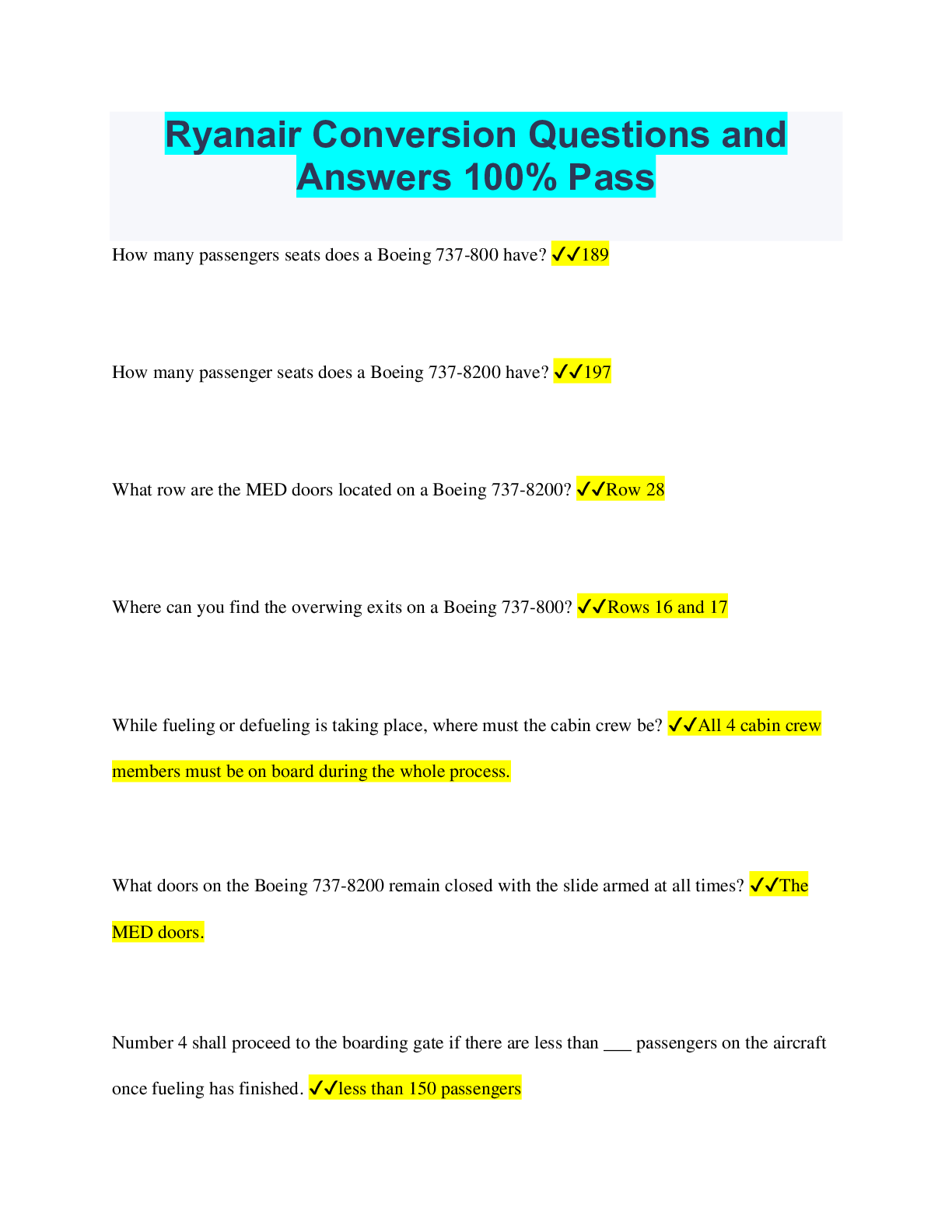
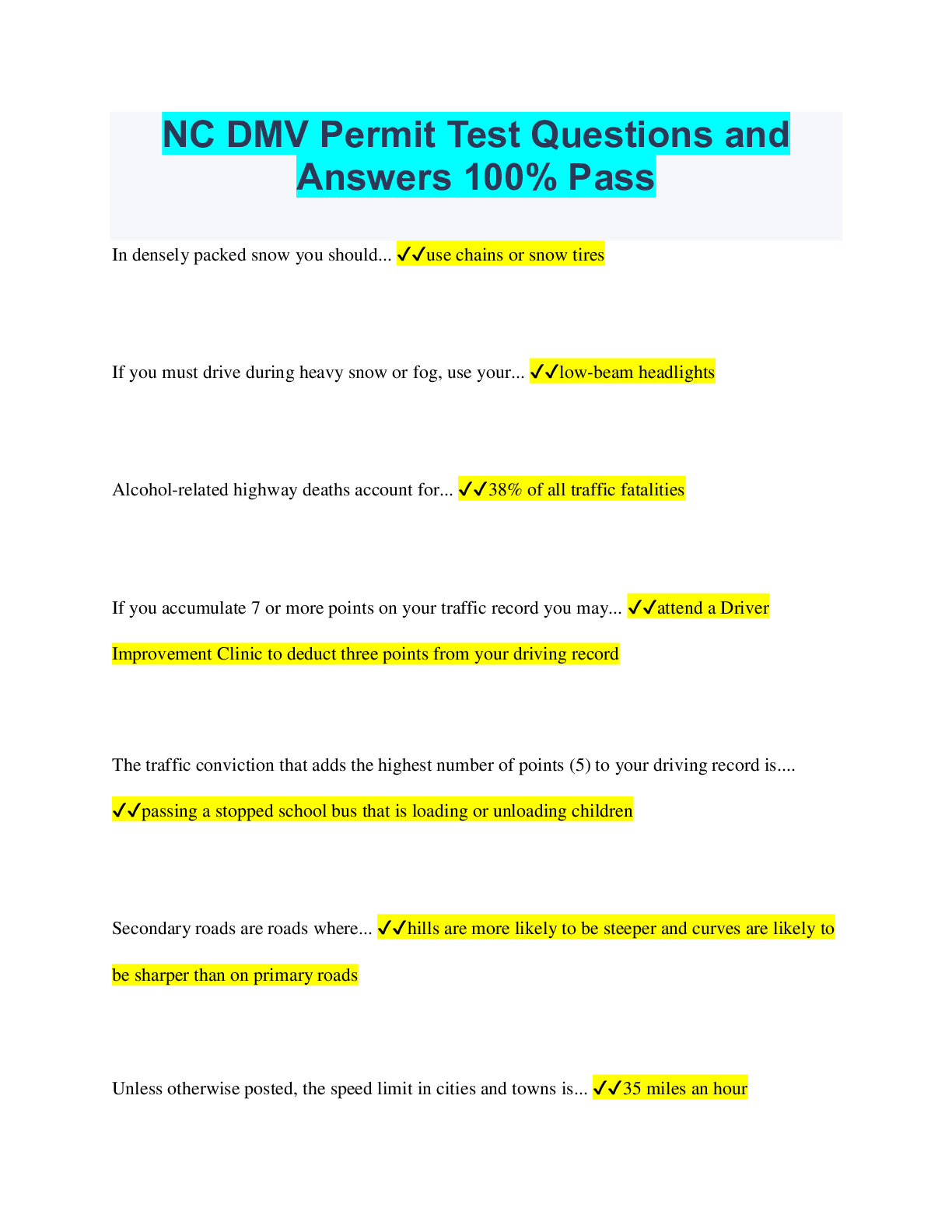
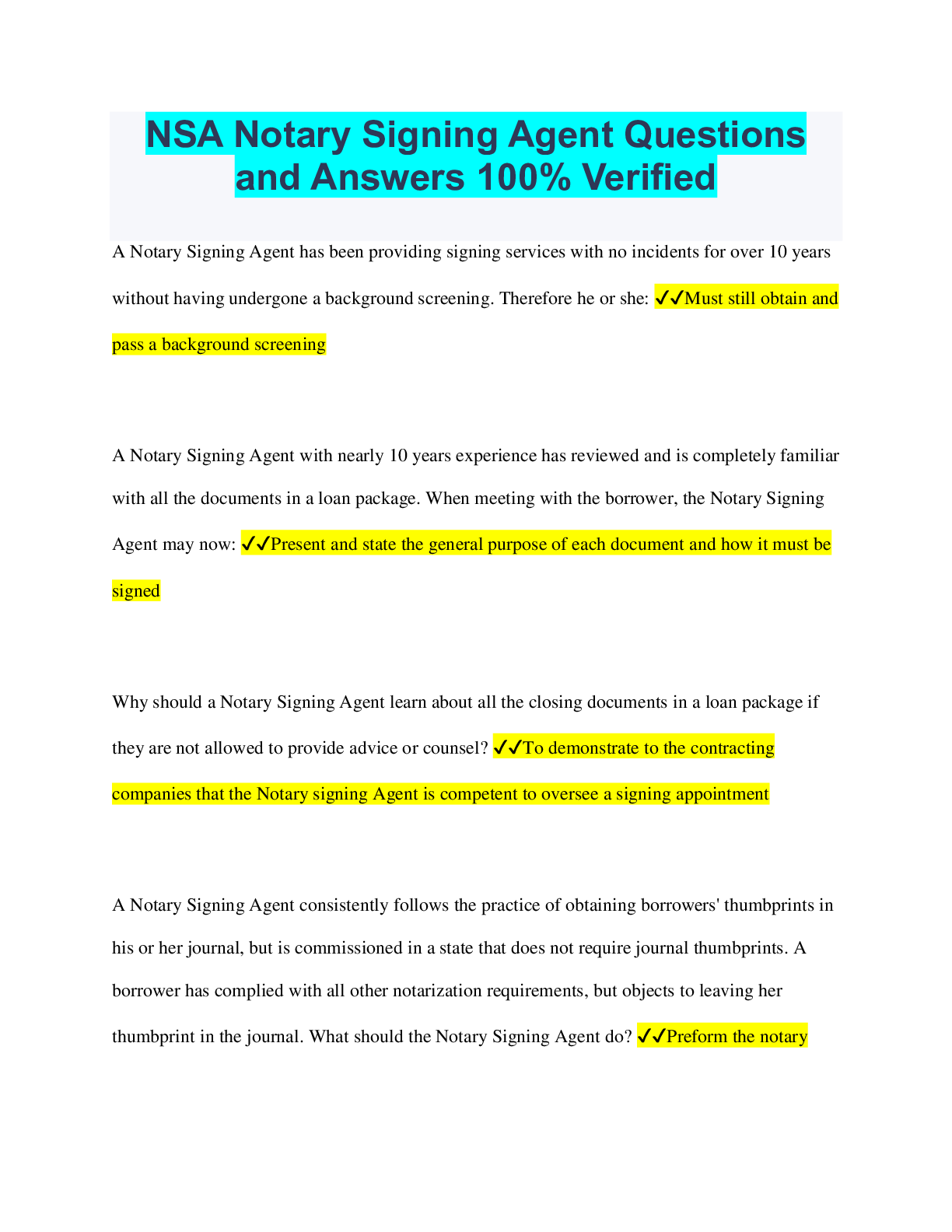
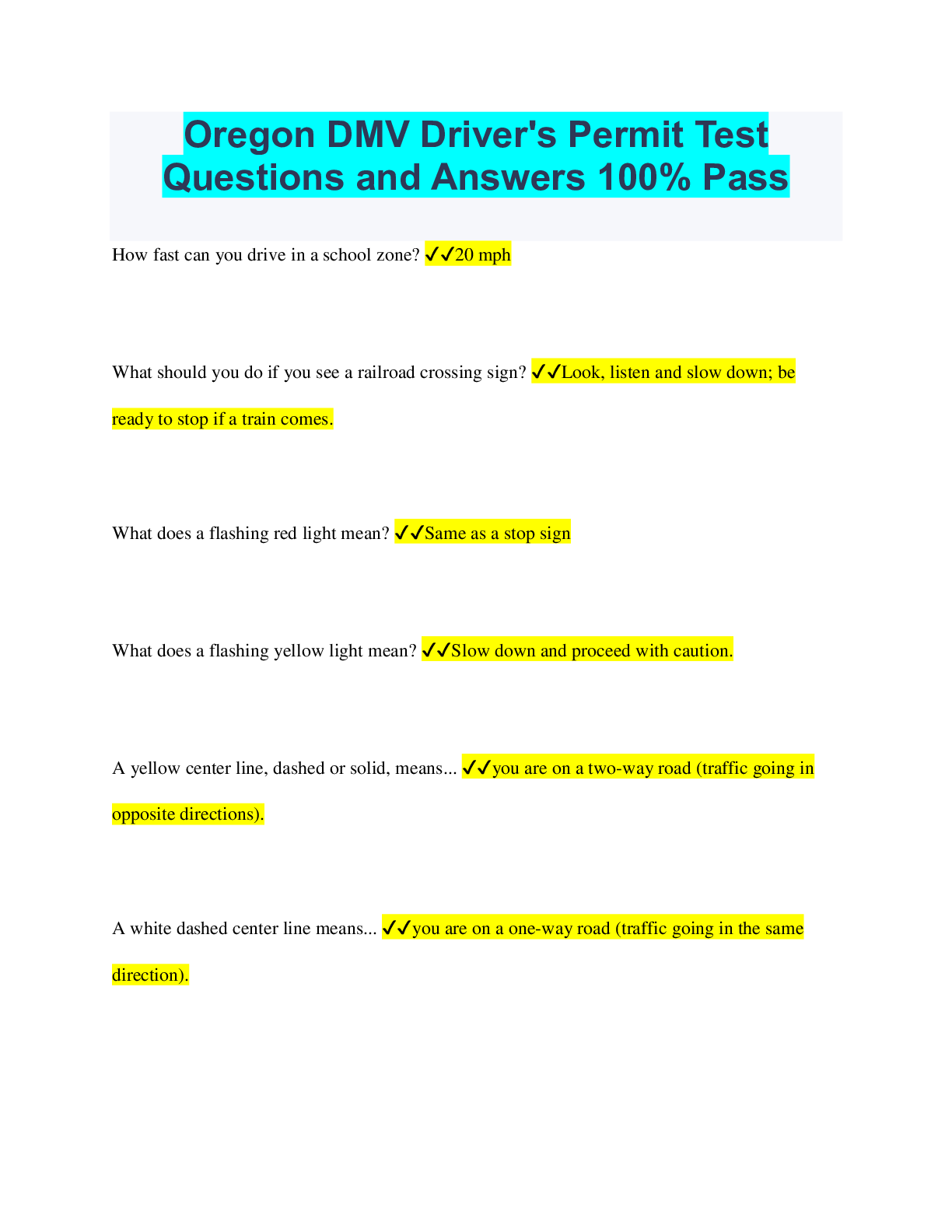
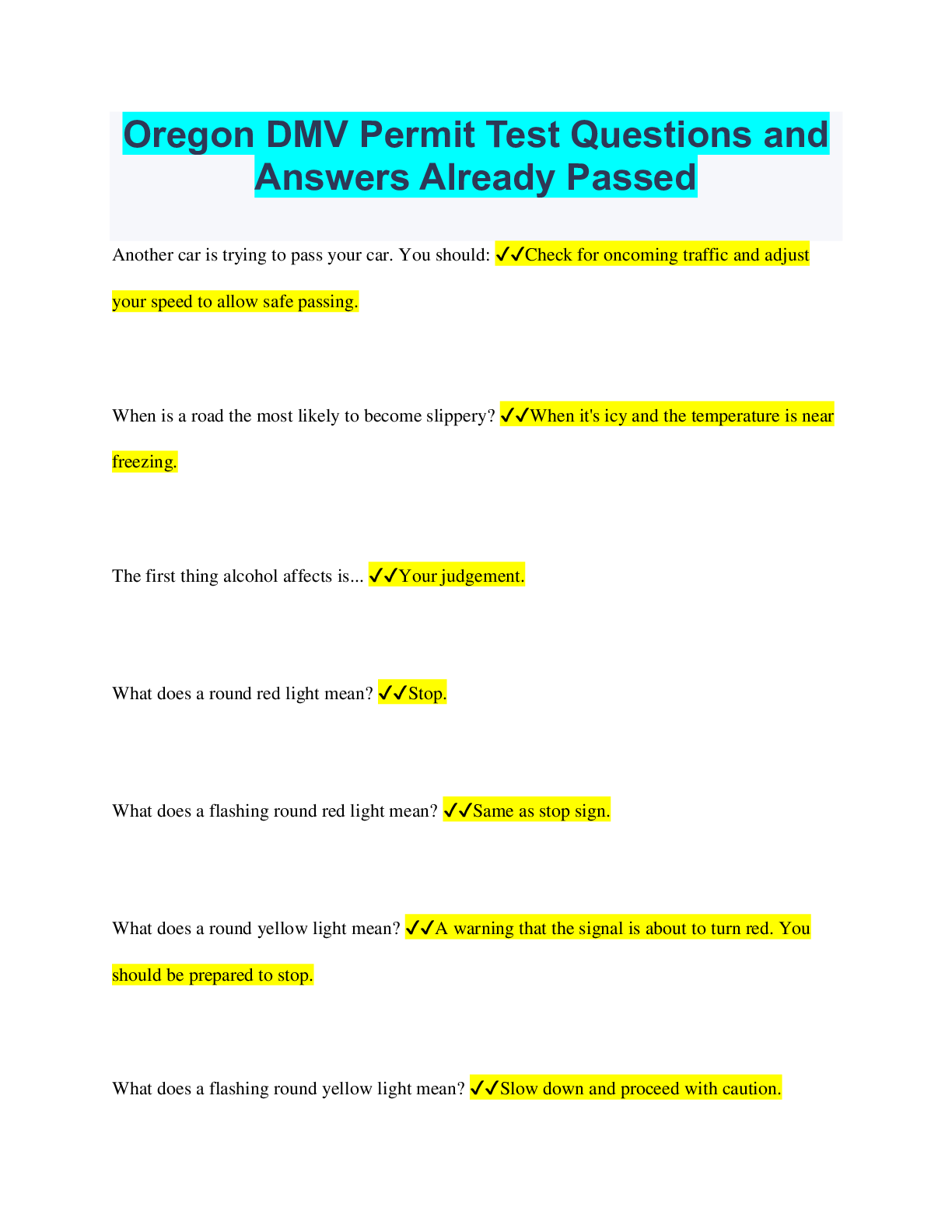
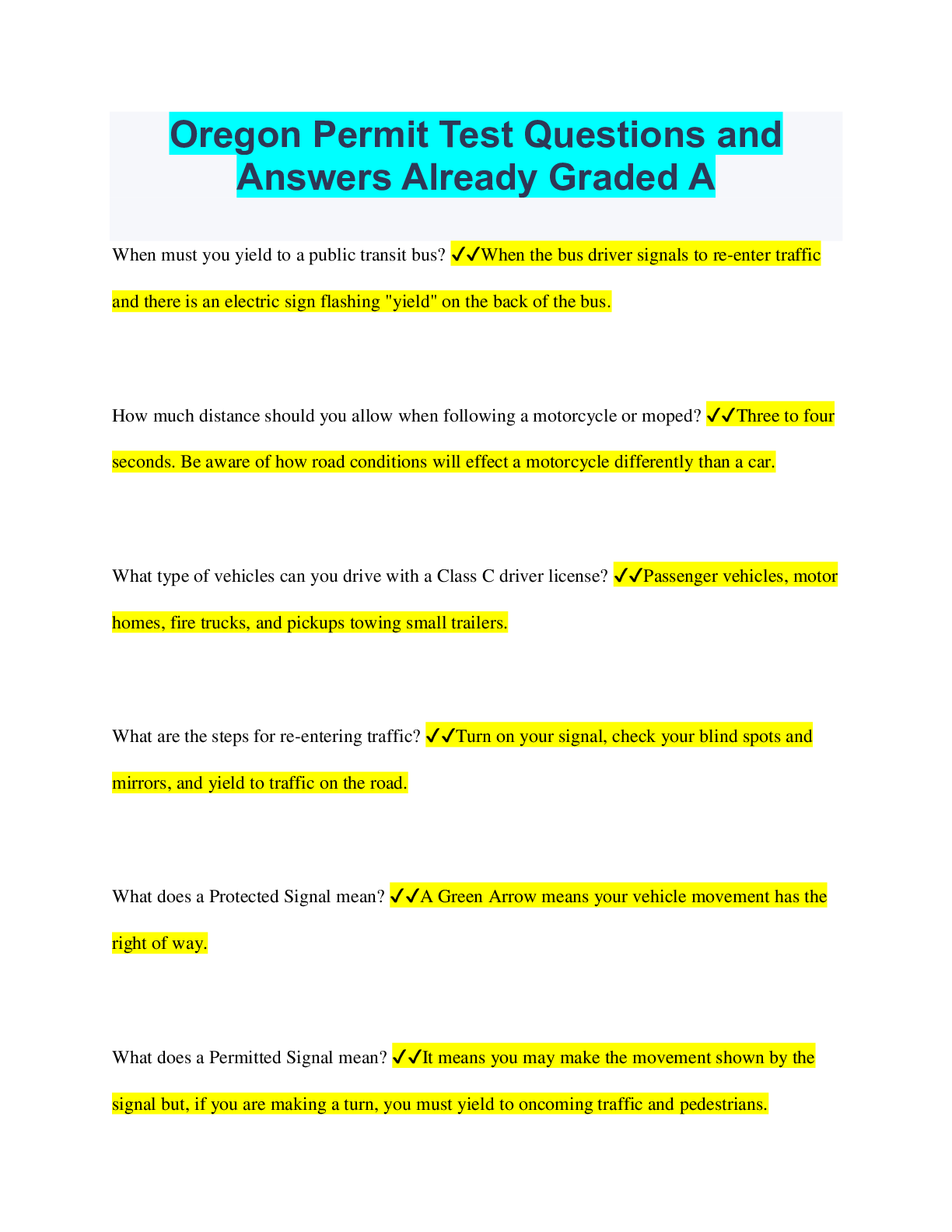
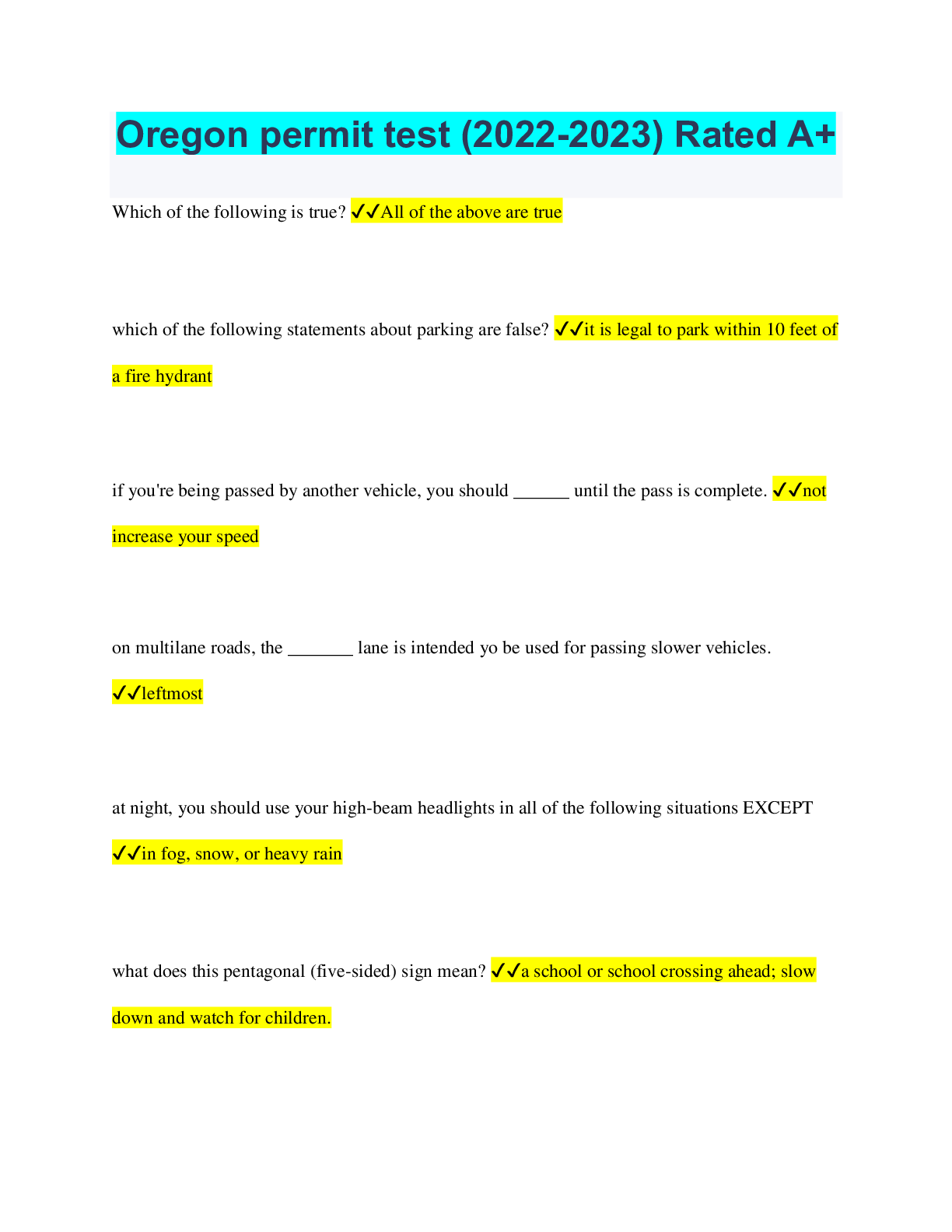
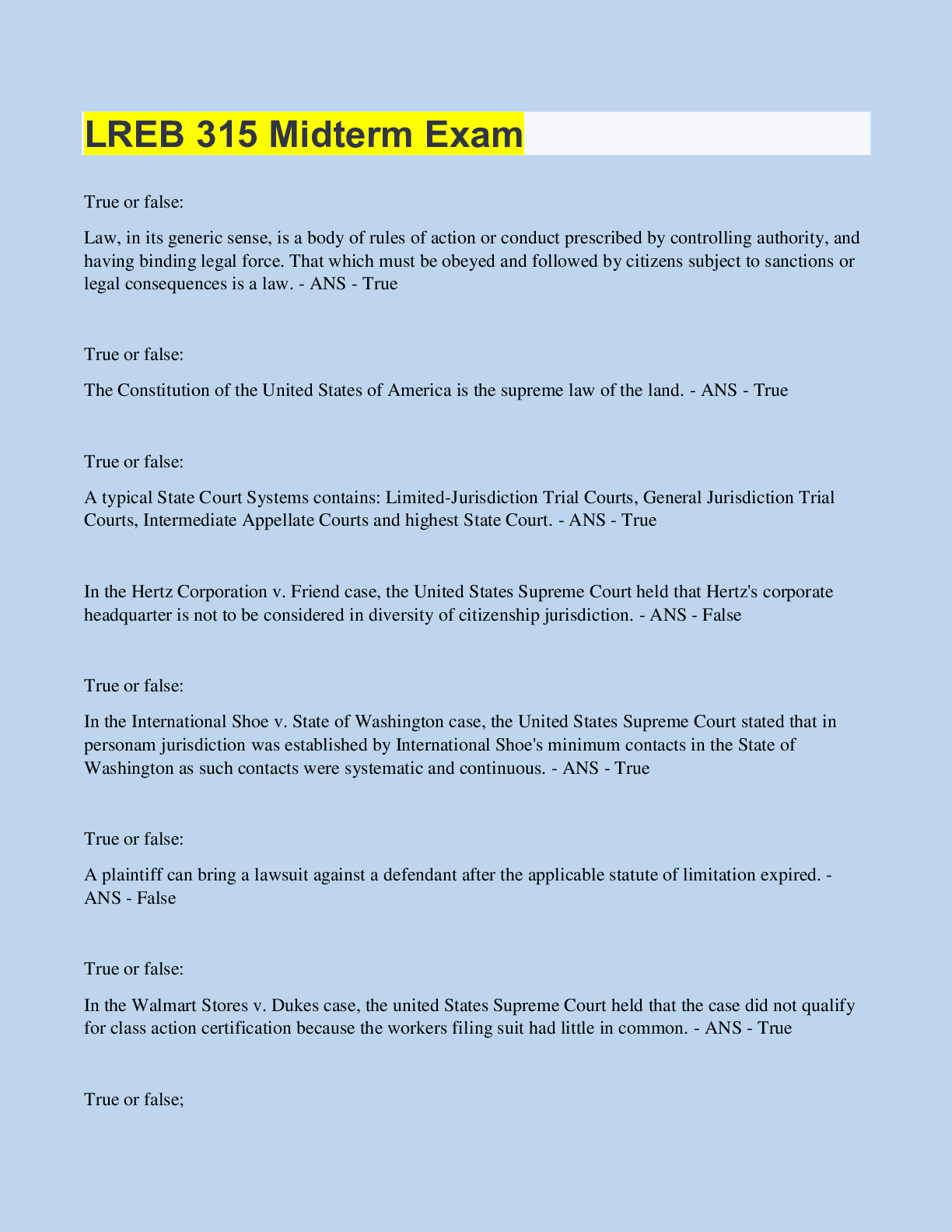
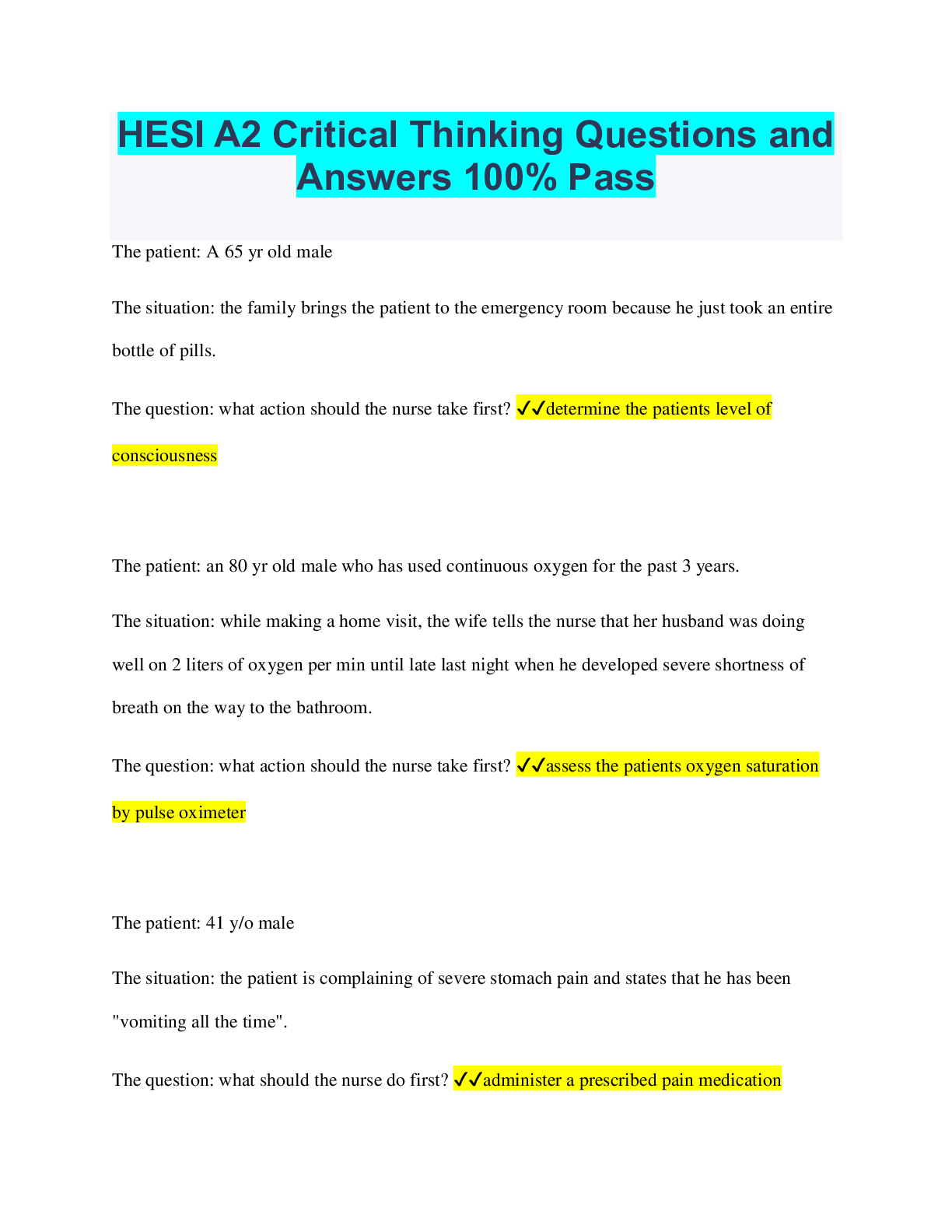
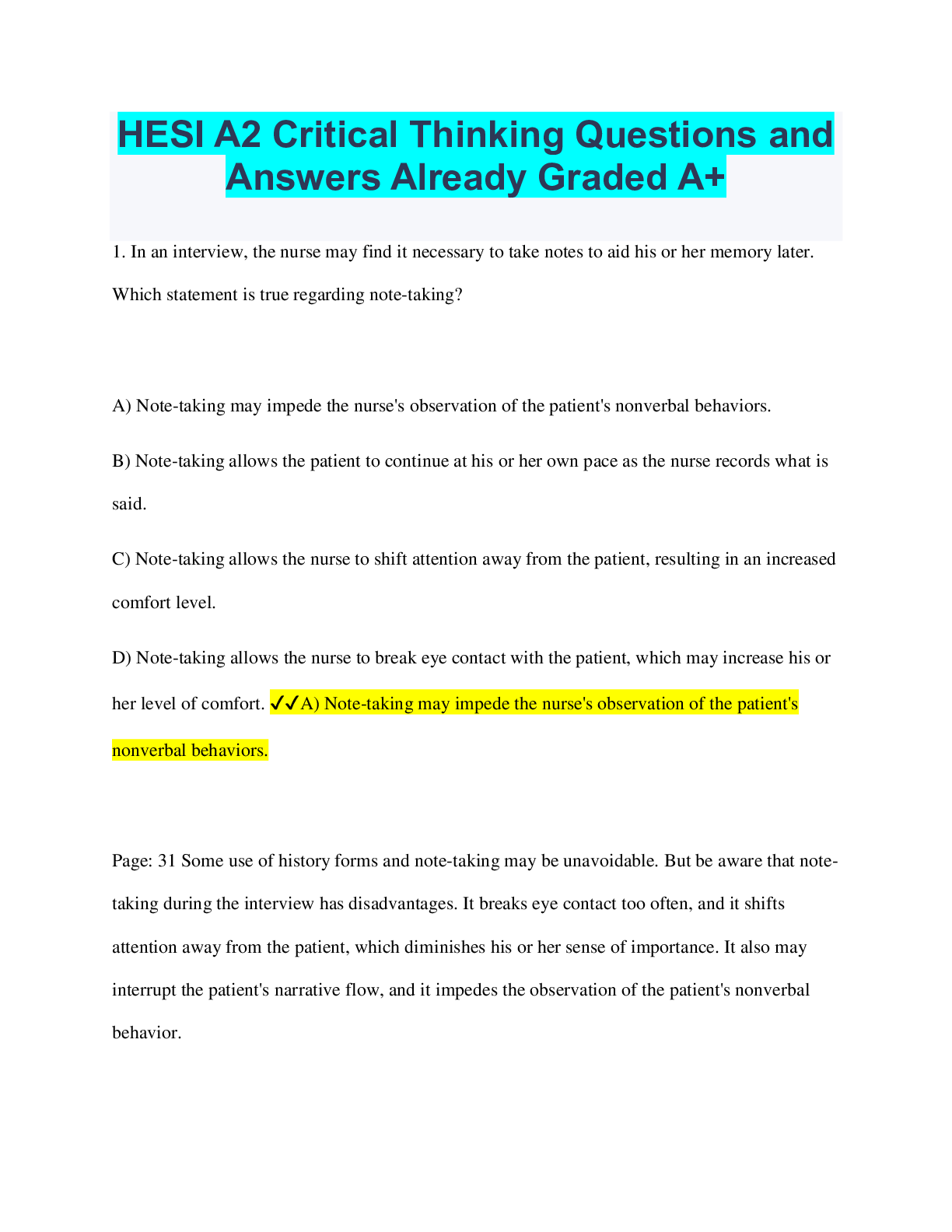
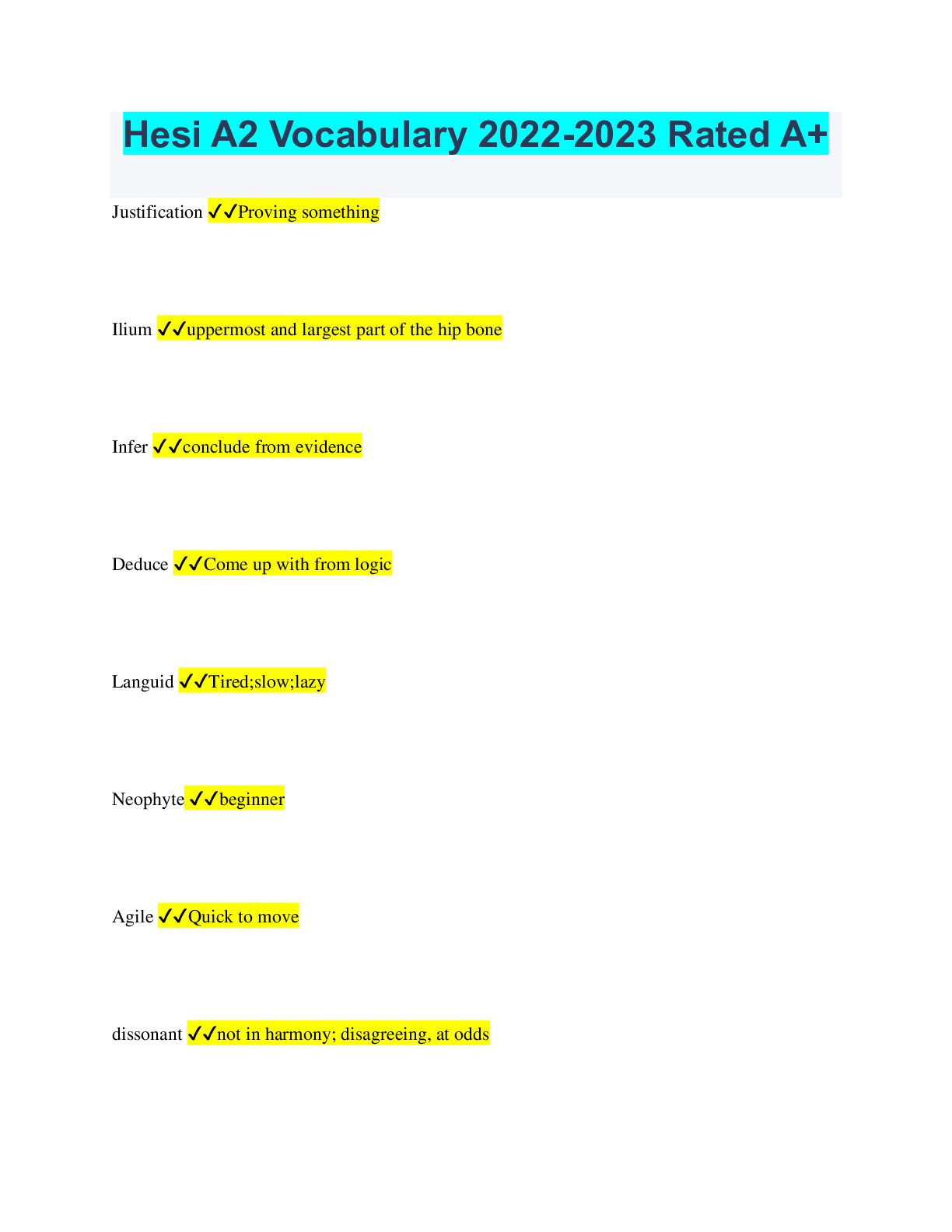
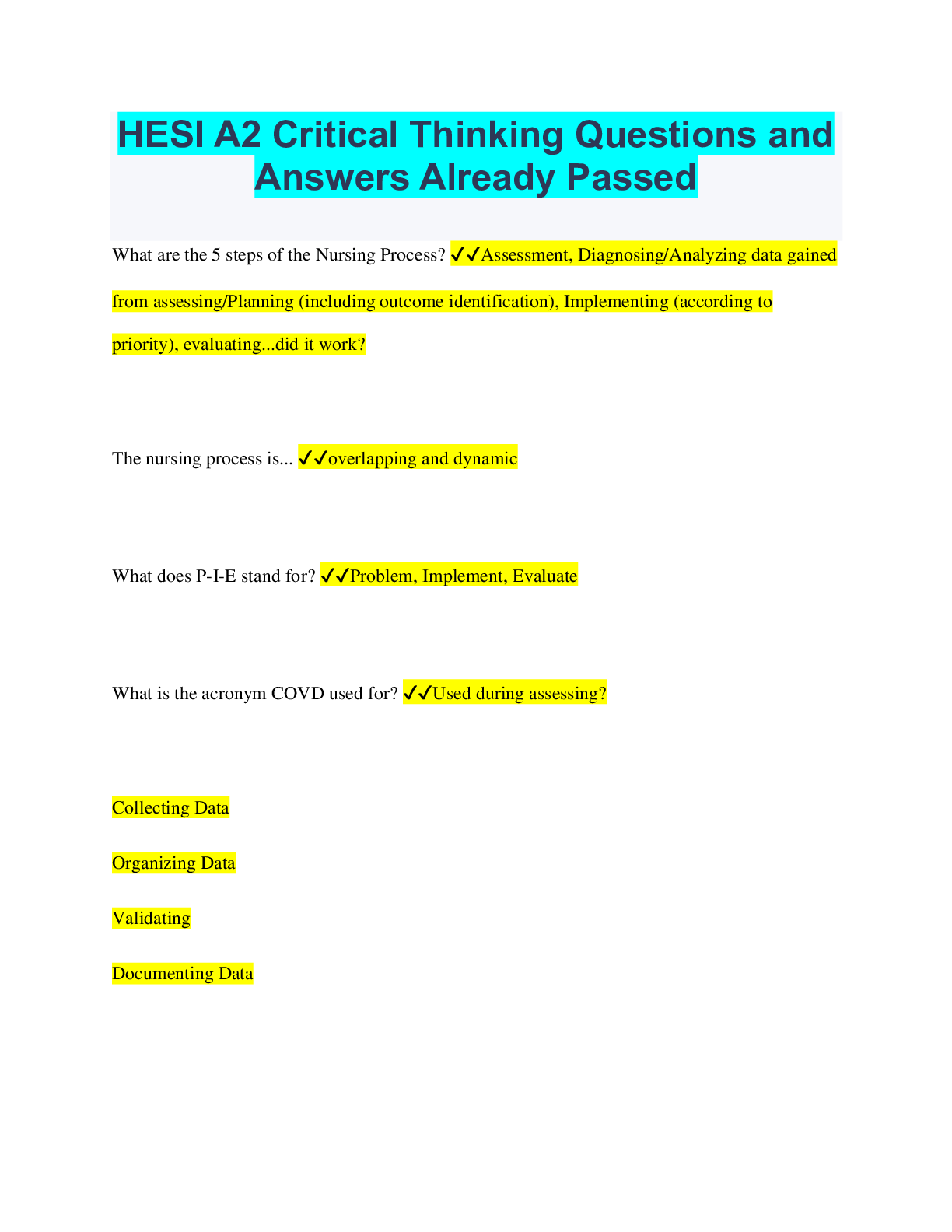
 (1).png)


